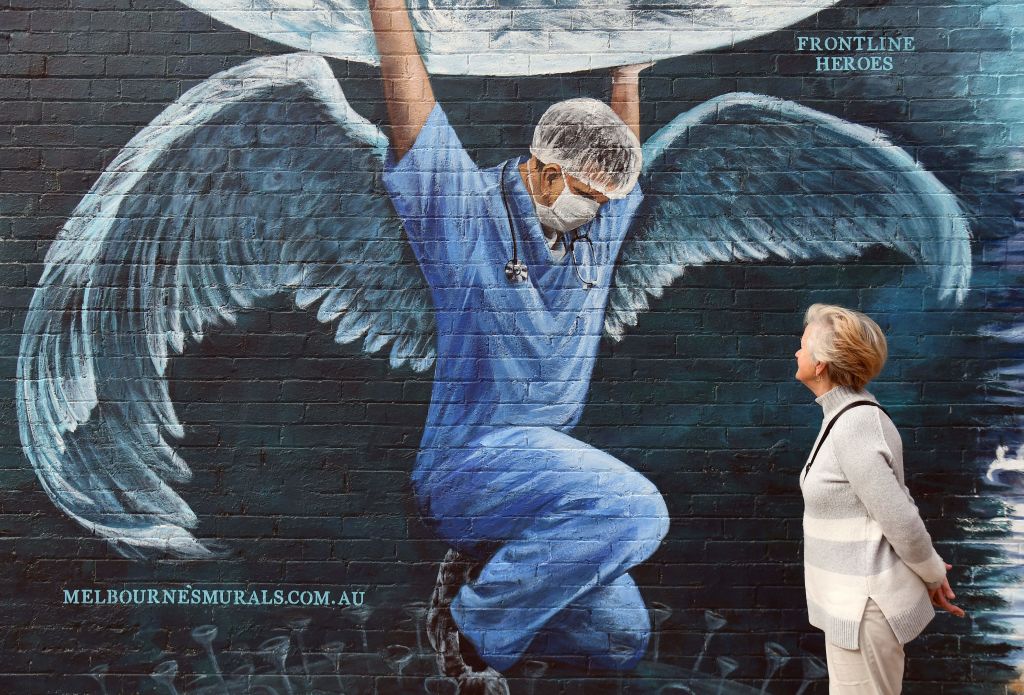
Frontline medical workers across the world are more stressed, anxious and making poorer decisions, and they’re unconsciously telling us through their social media posts.
Like everybody else, doctors and nurses have been struggling to adapt to the Covid-19 ‘new-normal’. They’re worried about the health and wellbeing of their friends and loved ones as well as the possibility of catching the disease themselves.
But, unlike the rest of us, they carry an additional load. They’ve been placed in the position of having to tell the loved ones of dying patients that they can’t be with them in their final moments. They have had to deal with people who don’t believe the pandemic is real or that people should be required to wear masks, even while those same individuals struggle to breathe unassisted. Some of them have been forced to make heartbreaking decisions about who will receive the limited resources at hand, effectively deciding who will live and who will die. And they have all undoubtedly considered the possibility of inadvertently bringing the deadly disease into their own homes.
There’s plenty of anecdotal evidence that our medical workers have been struggling more than most over the past year. Harrowing stories have been told amid reports of spikes in anxiety and depression, as well as a growing sense of hopelessness and fatigue. Incidents of burnout have increased significantly among a group already known for high rates of suicide, in a profession in which seeking therapy or medication can negatively impact a person’s career. Numerous studies have found that burnout among medical staff is linked to an increase in clinical errors and a decline in patient safety.
How can we quantify the impact of the pandemic on our medical heroes? One way is to listen to what they tell us through their use of language. The Receptiviti platform analyses the way people use unconscious language. It’s built upon decades of research that links human language and psychology, which has found that a small group of words that we use unconsciously—and which on their own have very little meaning—can provide a window into the psyche. Using the Receptiviti platform, we analysed hundreds of thousands of posts by more than 4,000 nurses and 2,500 doctors (predominantly based in the US) on the social media platform Reddit, posted between July 2019 and now.
Our analysis found significant trends starting around March 2020, when the World Health Organization declared Covid-19 a pandemic. That’s when the ‘cognitive load’ for both doctors and nurses started to rise. The term refers to how much of a person’s working memory is being used in their current situation, and a higher load is associated with elevated levels of strain and a greater amount of mental energy being utilised for coping. At the same time, indicators of analytical thinking started to plummet, suggesting a reduction in logical, analytical thought processes and complex problem-solving abilities.
Unsurprisingly, signs of anger also steadily rose throughout the pandemic, along with stress and anxiety, indicating a severe increase in burnout warning signs and an overall decrease in mental health. Interestingly, while there was a very significant spike in fear during the first few months of the pandemic (corresponding to a similar spike in anxiety), fear levels gradually returned to a level consistent with pre-pandemic levels among doctors, and have since dropped slightly below 2019 levels among nurses.
Perhaps the most surprising change was in the levels of empathy—how well a person is able to understand and relate to the feelings of others. Empathy levels among medical professionals dropped sharply at the start of the pandemic, before gradually returning to normal after a few months. Worryingly, empathy levels have recently begun to fall once again. Those changes in empathy are likely a reflection of being overwhelmed by the situation and having no time or energy to deal with petty issues during a global catastrophe, and indicate a sharp decrease in the compassion associated with good bedside manner.
What we found indicates that doctors and nurses are more distracted than usual, less rational, less empathetic and are facing a deteriorating mental health situation. That’s not exactly comforting for anyone in need of medical attention in the foreseeable future.

